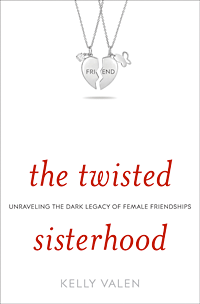1. Do you find that your own experiences with girls and women correspond with some of the experiences women from the author’s survey were reporting? If yes, in what ways?
2. In thinking about your own relationships with women, did you find parts of this book surprising, unpleasant, or emotionally difficult to read? If so, which parts and why?
3. A number of women told the author they found groups of girls and women particularly intimidating or difficult to deal with, preferring a more one-on-one style of camaraderie. Have you found yourself feeling the same way?
4. One of the more common coping mechanisms or adaptations women have reported in the wake of their female-on-female hurts is keeping other women at arm’s length and not letting them in too close — at least not until they’ve “proven” themselves. Can you relate to that sentiment or know other women who seem to relate in this way?
5. Do you agree with the many women who feel that the hurts dealt by our fellow females often sting us in a unique and/or profound way — in ways the hurts dealt by men often do not? If so, why do you think this is the case?
6. The author and the majority of her survey respondents suggest that engaged, proactive mothering is a key component to improving relationships among females and fostering a more authentic, hospitable, and collaborative “sisterhood.” Do you agree? Why or why not? Do you see mothers as getting a bad rap or do you think more mothers could use a wake-up call when it comes to raising their daughters?
7. The author acknowledges that it is an ambitious goal to inspire real social change but does offer some ideas for how this might be accomplished among girls and women, including her “Handy Top 15” tips in Chapter 12. Can you imagine some others?
8. Many survey respondents believe that relations among females often improve as we age. Has this been your experience? Is this your hope?
9. One overriding theme in the book is that no matter how content or supported you might personally feel with your current circle of girlfriends, each of us holds a stake in helping foster a more mindful civility. Would you agree? What would you be willing to do to advance that goal and achieve a new status quo or “new normal” among females in this country?
10. How do you think the author herself may have benefitted from conducting the survey and writing her book?


